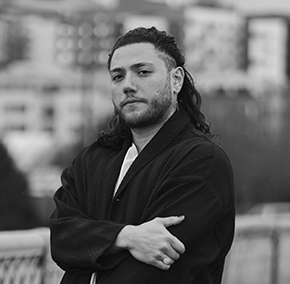All-American Ghazal
On our first date, I admit I haven’t left since arriving to this country.
So, of course, being dramatic, I became a poet’s country.
Years after divorce, I lost a custody fight, in part, because of
my status—so, indeed, a free country.
Pho in the South End. Oxtail in Queens. Tinned fish. Cannoli in
Little Italy. No-contact delivery. The food of my country.
Fifty or so provincial patches of grass—upon closer look—leaves.
The edge, where people live, frays in this country.
“We can work on human rights while negotiating,” the Senator
says, “the prospects of nuclear war in our country.”
I was born in the Philippines, so my native tongue is partisanship.
I’m many parties. I’m made impartial by my country—
a professional, ministerial office holder. A biblical fortune.
It’s libidinal, the we in the ballad that makes a land.
It’s provisional, the line that cuts through sand. I is a line
with a place to stand. I is a framing device. What good is a nation.
Parts of speech like mine fragment. Cut. Clean. I’m rightless
but I have capital. Charge me, Dujie, precis a person.
Copyright © 2025 by Dujie Tahat. Originally published in Poem-a-Day on October 23, 2025, by the Academy of American Poets.
“Poetry places language in tradition (even if to reject it). So this poem is about belonging to a country that doesn’t belong to you (its own Möbius strip of traditions and rejections). If all nations are a narration, the ghazal—for its refusal of narrative and insistence on rhyme—is the perfect form to hold the various dissonances of alienation within any given citizenry. Since all publics are imagined, the dissonance is as personal as it is political. I really did divulge this on a first date. I am still looking to be found.”
—Dujie Tahat

